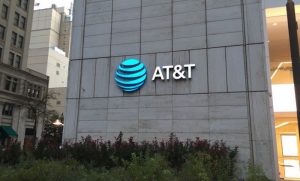The stories that most interested us this week.

- Following reports that the Justice Department might force AT&T to sell Time Warner’s CNN as a condition of approval of the merger between the two firms, Columbia Law School professor Tim Wu explains why, despite the “deeply disturbing” prospect of President Trump using antitrust law to punish political opponents, blocking the AT&T-Time Warner merger might be right. Over at the Wetmachine blog, Harold Feld, Senior Vice President at Public Knowledge, explains why the DOJ’s case against AT&T is stronger than some might think. Reuters reports that Rupert Murdoch telephoned AT&T CEO Randall Stephenson twice in the last six months to talk about potentially buying the cable network.
- The Paradise Papers, made public by the International Consortium of Investigative Journalists (ICIJ), are the latest leak to shed light on the trillions of dollars kept by some of the world’s richest individuals and biggest corporations in offshore tax havens. In The New York Times, reporters Scott Shane, Spencer Woodman and Michael Forsythe outline the main revelations and how they came about. Also in the Times, UC Berkeley professor Gabriel Zucman, author of the The Hidden Wealth of Nations (University of Chicago Press, 2015), details how to stop corporate and individual tax avoidance.
- One of the prominent figures implicated in the Paradise Papers revelations is Commerce Secretary Wilbur Ross, who leaks show failed to disclose his ties to close allies of Vladimir Putin. In The Intercept, David Dayen argues that the Ross scandal isn’t really about Russia, but about corruption. In The Guardian, Senator Sheldon Whitehouse (D-RI) describes the revelations as a “wake-up call” and calls on Congress to act on tax havens.
- In a speech to the Open Markets Institute, Senator Al Franken (D-MN) delivered a blistering critique of tech giants Facebook, Google, and Amazon, calling for net neutrality rules to be applied to the big tech companies. The speech can be found here. The Washington Post’s Brian Fung elaborates on the significance of Franken’s remarks.
- EU competition commissioner Margrethe Vestager also went on the attack against digital platforms this week, accusing tech giants of undermining democracy and engaging in anti-competitive behavior. The cover story of The Economist leveled a similar charge last week, arguing that social media threaten democracy.
- In The Financial Times, “Undercover Economist” Tim Harford explores ways to “poke Facebook off its uncontested perch,” focusing on a suggestion by Luigi Zingales and Guy Rolnik [both among the editors of this blog] to introduce “social graph portability.”
- Disney has ended its ban of The Los Angeles Times, after its decision to bar the newspaper from press screenings following an investigation into the media giant’s business dealings caused an uproar. A CNBC report also revealed this week that Disney has held talks to buy most of 21st Century Fox.
- In The Washington Monthly, Mark Kleiman reviews Brink Lindsey’s and Steven M. Teles’s recent book “The Captured Economy: How the Powerful Enrich Themselves, Slow Down Growth, and Increase Inequality.” We’ve published two excerpts from “The Captured Economy,” on intellectual property laws and medical licensing.
Stigler Center Goings-on
Watch a discussion between Luigi Zingales, Deirdre McCloskey, and Timur Kuran at Sweden’s Ratio Institute on the populist threat to free society.
We celebrated the 40th anniversary of the Stigler Center for the Study of the Economy and the State with our “Stigler in the 21st Century conference. View a selection of the streamed sessions here or check out the ProMarket columns from Sam Peltzman and Douglas Irwin reflecting on the Nobel prizewinner’s long-term impact on economics.
Have you signed up for this month’s Stigler Center talk by Tyler Cowen? If not, do it here.
Disclaimer: The ProMarket blog is dedicated to discussing how competition tends to be subverted by special interests. The posts represent the opinions of their writers, not those of the University of Chicago, the Booth School of Business, or its faculty. For more information, please visit ProMarket Blog Policy.






